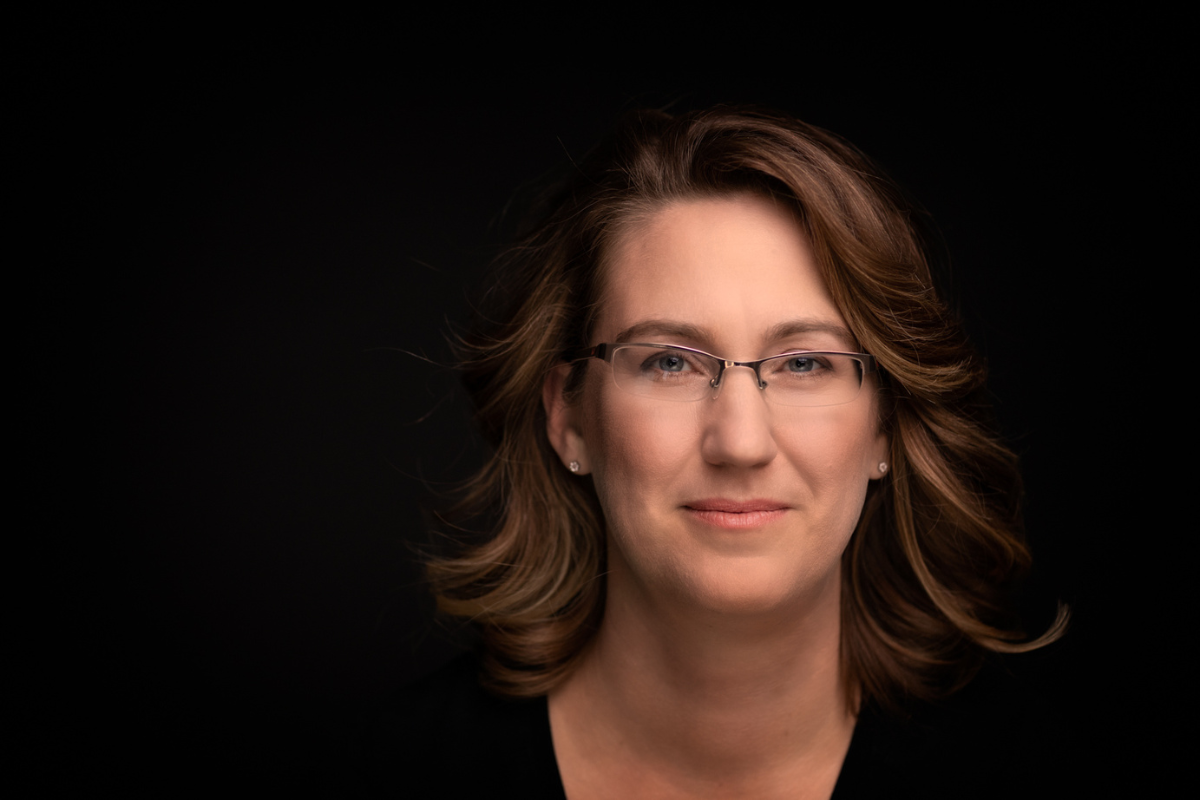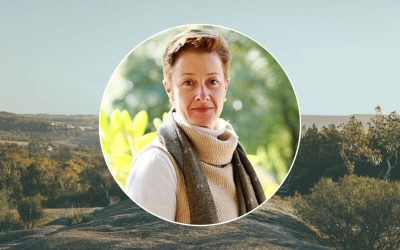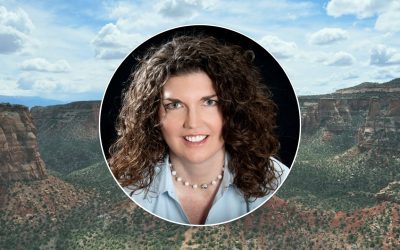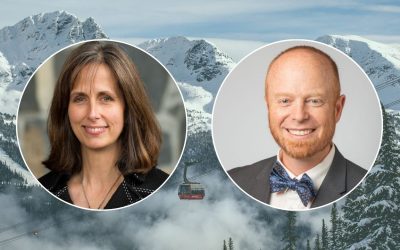“One of the challenges that we’ve had in articulating sustainability and the values from the region is that those type of people live the values of sustainability every day. So they don’t certify, they don’t check a list and say, ‘I’m going green this week, I’m committed to this,’ because it’s something they inherently always do.” – Amy Thacker, CEO of Cariboo Chilcotin Coast Tourism Association.
Residents of the Cariboo Chilcotin Coast region of British Columbia are feeling a little “impact fatigue” these days. But in the wake of wildfires and amidst the challenges of the pandemic, the region stands resilient. The local travel industry is adapting to new scenarios with assistance from the Cariboo Chilcotin Coast Tourism Association, which has found a vital role in fostering collaboration among local operators, sharing success stories, and helping the region recover while planning for the future.
CEO Amy Thacker sheds light on the region’s innate commitment to sustainability – even if locals might not always use those exact words. We look at the unique climate risks faced by the Cariboo Chilcotin Coast region and the inevitable fatigue that follows such adversity. Additionally, we delve into the vital role of the region’s Destination Management Organization (DMO) in supporting the tourism industry.
In this episode of Travel Beyond, you’ll learn:
- About the climate risks and “impact fatigue” affecting the Cariboo Chilcotin Coast in new ways.
- Why locals find it hard to speak the language of sustainability, but still show it through action.
- How this region’s DMO is supporting the tourism industry to share their successes and plan for the future.
Subscribe on Apple Podcasts, Spotify, or your favourite podcast player to join us on this journey.
Show notes
Cariboo Chilcotin Coast Tourism Association – The region’s destination management organization.
Episode transcript
Amy Thacker: One of the challenges that we’ve had in articulating sustainability and the values from the region is that those type of people live the values of sustainability every day, so they don’t certify. They don’t check a list and say, “I’m going green this week. I’m committed to this,” because it’s something they inherently always do. And one of the things I’m excited about is finding and pulling out those stories to show the power of the individual people actually preserving places, restoring places, and driving that change.
David Archer: Welcome back to Travel Beyond. I’m David Archer at Destination Think, recording from Haida Gwaii in British Columbia on the territory of the Haida Nation.
On this show, we partner with leading destinations to bring you inspiring solutions to challenges facing communities and the planet. We look at the role of travel and highlight destinations that are global leaders. We talk to the change makers who are addressing regenerative travel through action in their communities and often from the bottom up.
As always, we’re actively looking for the best examples of efforts to regenerate economies, communities, and ecosystems, so be sure to reach out if you have a story to share with us. You can reach me directly at david [at] DestinationThink.com.
Last time, we kicked off a series of conversations in the Cariboo Chilcotin Coast, and that’s a vast and varied region of interior British Columbia in Canada. Mike Retasket, five-time elected chief of the Bonaparte First Nation, shared his unique journey into the tourism industry. And he also told us about how sharing some of the painful truths of colonization with visitors can, at times, bring healing.
Today we’re back in Williams Lake with Amy Thacker, the CEO at Cariboo Chilcotin Coast Tourism Association. Amy gives us an overview of some of the challenges she’s seeing in the region, as well as her DMO’s efforts to solve them. And as you’ll hear, it’s been a few tumultuous years for this region, starting back in 2017 with wildfires that prompted evacuations from several communities and forced the province of B.C. to declare a state of emergency. Those fires, of course, also disrupted many travel plans during high season. And in the years since then, wildfires have continued to threaten homes and hamper travel. And when you add that to the pandemic’s challenges, you can see why people here might be feeling a little bit of “disaster fatigue,” as Amy calls it.
But her DMO has found an important role in supporting tourism operators and sustainable initiatives even during times of hardship. This region’s travel mix may have changed, but innovations from rural communities, sometimes driven by pure necessity, continue today. So we’ll hear all about that.
Here is co-host Robyn Goldsmith speaking with Amy Thacker in Williams Lake, British Columbia.
Amy Thacker: I’m Amy Thacker. I am the CEO of Cariboo Chilcotin Coast Tourism, which does all destination management from development and sustainability to marketing and business coaching.
Robyn Goldsmith: Got a huge region here. Can you tell me a little bit about where we are and your connection to this place?
Amy Thacker: Yeah, absolutely. So the region is the central interior of British Columbia. It stretches from Lillooet and the Bridge River Valley in the south, all the way up to just below the city of Prince George and small communities of Stone Creek and Hickson, and from Wells Gray Park to the Pacific Ocean.
So, very broad and diverse. I was born on a ranch on the very southern end of the region and raised throughout the whole area because my dad cowboyed, so we wandered all over every corner of British Columbia but somehow kept coming back here. So this became home.
Robyn Goldsmith: Cowboy, that’s very cool and seems very appropriate for this, this place, too. It’s a theme that I see everywhere.
Amy Thacker: Yeah, very much. The history of the place in ranching and development and forestry and mining is, is very strong, but, uh, my dad was a city-born West Van boy who watched the dream of cowboys on the screen and came up with his family to guest ranches, which is iconically still our product today, as a young boy and fell in love with it.
And back then you could take the passenger train up. So every summer when he got out of school, he would come up and work on guest ranches until he graduated. Then a cowboy and ranched the rest of his life.
Robyn Goldsmith: What a story.
Amy Thacker: Yeah, yeah, so I was the nomadic ranch kid raised on the other end of that spectrum connecting back all over to the Cariboo.
Robyn Goldsmith: Very cool. So can you tell me a little bit about how this place has changed in your long experience in the region?
Amy Thacker: Oh in some ways. The area has changed profoundly, and in other ways, not at all. I think that’s one of the beautiful things I like about this region and the advantages we have in the work we do.
The people here are still connected to the land and live off the land and those industries and mix of economy exists. We’re somewhat untouched by the world, even though it’s evolved, and have this opportunity to learn from other places’ challenges and build a little smarter, is my opinion. I guess, my glorified dream of it is to learn from those mistakes and build smarter before those bigger social problems come here.
Uh, the region’s changed in connectivity. Some of the development that’s touched and grown, I see, that would change the fabric of the region. If you think when my dad first came here, travel was by air or train, predominantly. The road network and, you know, EV cars or big trucks that could access all these places wasn’t a reality.
So unique transportation and that personal touch was how people traveled. Today we have the modern highways, and the modern infrastructure of airports, and you see that connection to people in service through tourism and hospitality, and not so much in the daily life. So some of the modern world has shifted the region. And then other parts of the region, I can wander out and they are still off-grid, packing by horse, living off the land, connected to nature, and, truly authentic.
Robyn Goldsmith: It’s like continuity through evolution is, I think, what you’re describing.
Amy Thacker: Yeah, that’s a really great way to put it.
Robyn Goldsmith: Yeah. So we were just talking about this before we kind of got into the real recording session, but you were talking about how people here feel like they’ve kind of been in recovery since, since 2017.
Can you talk a little bit about some of the challenges this region’s encountered over the last, years?
Amy Thacker: Yeah. So 2017 was a major wildfire season here that for the first time in collective memory impacted communities. Wildfires are part of British Columbia. They happen in the backcountry. I think as a society we had taken for granted that they would be there and they would never touch us.
And in 2017, the entire communities of 100 Mile House and Williams Lake were evacuated. It was the largest mass evacuation in British Columbia’s history. At that time it was the largest wildfire burned impact in British Columbia’s history.
Unfortunately, we’ve exceeded that twice since then. But it really set off a chain of events and external impacts on people and industry in real British Columbia that have been continuous over the last five years. It was followed up by major flooding. 2018 was another wildfire year. We sort of started to think the world was going back to normal in 2019, then COVID hit, a pandemic closed, access changed, 2021 brought fires back, and there’s a sense of impact fatigue, or disaster fatigue, throughout the industry and in people here that have definitely changed perspectives in how people have capacity to engage and to give, whether that’s through volunteerism, or to growing their business, or to showing up for their family. That is something that we’re looking at supporting and tackling and being aware of as we move forward in our business development work.
Robyn Goldsmith: From what you’re describing, we could think of recovery as being linear, as that there’s a disaster and then we’re on the up-and-up after that. But it sounds like you’re sort of, dealing with the reality of both recovery and planning for the future.
Amy Thacker: Yeah, absolutely. I think we want to all simply, as humans, put things in boxes and say, you know, here’s an event. It ended. Here’s recovery. It ended. Life is back to normal. But we’re living in a really dynamic time of change. And I don’t believe that you can put the point on when that ended and changed until you’re through it looking back.
It’s really easy to historically look back to statistics and say, “Okay, that was the point in time when we recovered or when that shifted.” But when you’re living in that amount of change and evolution, it’s really hard to demarcate that point and say “We’ve got it,” and move on.
And I think one of the things that we can play a role in, in supporting industry and business, is to celebrate the wins, and focus on the positive in the future, and help them step out of that space of being always triggered and feeling like they need to respond and react and support that planning.
Robyn Goldsmith: Yeah, that makes sense. How has that looked economically for the region over the last 10 years or so?
Amy Thacker: Five, ten years? Yeah, there’s been a lot of evolutions and swings economically for tourism. Overall, our sector has grown in this region and our tourism economy financially is quite diverse here by the nature of the other industries and the economic mix that we share.
It’s not just leisure. From an economic perspective in recovery currently, our data and numbers would tell us our international visitors aren’t back. Those markets are still soft because of the cost of travel, because of the economic realities and wars that are happening in the world, the change in flight routes, and all these other things.
But on the other side of that. As the businesses touched on at the conference, they’ve hosted wildfire crews. They’ve hosted BC Hydro, and infrastructure recovery crews, and that sort of other business element mix offset. So we’ve seen year-over-year growth overall in the economy, but the mix has changed. And for some parts of our region, depending on where they are in the impact and access, they might have recovered differently and be considered flourishing and happy, whereas others are still on that bottom end of struggling and right on the line, economically, of survival. So we have quite a mix.
Robyn Goldsmith: Right. That makes sense.
Not everyone is going to have exactly the same issues or exactly the same recovery trajectory.
Amy Thacker: Exactly.
Robyn Goldsmith: Yeah. Can you tell me a little bit about, sort of, the values in the region and the outlook towards sustainability?
Amy Thacker: There are very strong values and opinions here. It’s one of the reasons that I love the work that I do here, Robyn. Our stakeholders will call a spade a spade and tell you exactly how it is. There’s not a lot of political lingo or soft language around things, which is truly a fun environment to work in.
The value set collectively of the residents and the operators is very much environmentally land-based and, I will say, resonates with what we call sustainability in the broader world. They are committed to protecting the environment. They are very much looking at regenerative practices, what they can do on the profit side to cut their costs and be efficient and still deliver those experiences. They want to share culture. They want to share who they are.
I don’t have a lot of operators and experiences that are sort of a commercial polished. A lot of our lodges and experience providers have taglines like, you come as a guest, you leave as family. And that is very much the feeling of the region due to the remote nature and the multi-generational families that are delivering it.
One of the challenges that we’ve had in articulating sustainability and the values from the region is that those type of people live the values of sustainability every day, so they don’t certify. They don’t check a list and say, “I’m going green this week. I’m committed to this,” because it’s something they inherently always do. And one of the things I’m excited about is finding and pulling out those stories to show the power of the individual people. Actually preserving places, restoring places, and driving that change on the ground, without it having to be a largely funded movement.
Robyn Goldsmith: That’s really interesting, is that there’s so much pre-existing culture that really looks at, at sustainability in a way that people probably wouldn’t call environmental sustainability or anything …
Amy Thacker: Absolutely, yeah, I mean, I work with operators that are, you know, replanting native species on riparian zones on creeks through their land, because that’s what you do to recover after a flood, not because it’s the environmental or sustainable thing to do. That rotate natural and biodiverse landscapes for grazing to bring back the health after a burn. That when these things happen, these are just the things you do. What do you mean that fits into a box somewhere? So it’s incredibly fun to work with. We are challenged to find a better way to tell and share those stories with the world to inspire other people that they can make a difference simply by adopting those values and being connected to the land, and understanding simple things like where your food came from and what your impact is.
Robyn Goldsmith: So it sounds like a lot of the work you’ve been doing in this area is kind of focused around storytelling, would you say? And giving rise to those positive things that are already happening?
Amy Thacker: Yeah, absolutely. We are looking to do a better job at storytelling and at the same time connect our businesses to the tools out there in the world that empower them to storytell as well. And growing their capabilities on the modern side without sacrificing their values. For example, bringing in increased digital literacy and empowering them to get online, advocating for policy changes for access and infrastructure, to get electricity simply to some parts of our region, or to support funding for our operators to put in their own power systems and solar rebates and those sorts of things, because we still have parts of our region that are on diesel generation because the province hasn’t put the infrastructure in to support the commitments that the people on the ground want.
So we have a two-pronged approach in helping them tell their stories. But us doing a better job at understanding how to connect those to the world.
Robyn Goldsmith: Right. That connection and, kind of, advocating for the needs of the region, would you say?
Amy Thacker: Yeah, it’s a big part of our job here that’s probably unique, um, to the regions in British Columbia. I think we’re the only regional organization that has an advocacy committee and has a full-time dedicated group of volunteers that look at what the issues and challenges to policy are for business success and operations, the way they want to operate on the value base, on the land, and taking them to government, and advocating for solutions. Yeah.
Robyn Goldsmith: This is a big question.
Amy Thacker: Okay.
Robyn Goldsmith: What’s your vision for the future of this region?
Amy Thacker: My big vision? I want to see the people in power to flourish. This region has a really cool history of leading things in all spaces, but quietly. They’re the quiet innovators that just do it because it’s right. And I would love to see a business environment where that allows them to be successful enough to live the lives they want and share that with the world.
Robyn Goldsmith: I love that. Succinct too. A lot of what you’ve touched on and what I heard yesterday, I think, at the conference, too, really seems to focus on wanting to be at the forefront of innovation. Would you say that’s accurate, or at least getting ahead on some of these big changes?
Amy Thacker: Yeah, absolutely. I’ll tackle that in two ways. Robyn. I think that is very accurate and resonating what you hear on the ground. One piece of that is the passion of the people, to lead and do things differently in the world and learn from those mistakes that we touched on before we get there, because we have this beautiful, sweet spot of still being in a growth phase and doing it right and doing it differently.
The other avenue of that is the unintended consequences of well-meaning policy that we see happen time and time and time again. And I think the leaders and the business owners in this region have learned over time that if we wait for it to come down the pipe, then it’s painful and doesn’t always fit the values of our region.
If they stand up and lead and show that they can do this better than the government has dictated, then they have an opportunity to guide policy and come up with something better than they’re told. So there’s that little bit of tension between the, the two innovation for innovation sake, and innovation to protect unintended consequences and ensure that the people have the power of the future and the solution. And it’s not dictated by a government that doesn’t understand our way of life here.
Robyn Goldsmith: If you had a blank check and a magic wand, what would you do to ensure a bright future for this region?
Amy Thacker: Now that’s the big hairy question. I often joke about what would I do if I had the magic pen for the day.
I don’t know.
I think it is, that’s a little bit big because there’s so many different avenues and pieces to take on for them. And it really depends on what pillar we’re working in. You know, we talk about people, planet, prosperity on things that need to happen. I guess my one takeaway and what we strive to do is to continue to remind the people that the power truly sits with them. That we are a democracy. And while it doesn’t always feel like that sometimes, if we empowered every resident and business owner to own whatever that most important thing is to drive an innovation here, they have the power to make that change. They have the power to own that space. They have that power to influence it, that that power actually sits with the people and the innovation on the ground.
Robyn Goldsmith: Sounds like your magic wand would be to give everyone else a magic wand.
Amy Thacker: I like that. Yeah, it would be.
Robyn Goldsmith: That’s very magnanimous of you.
Amy Thacker: Very much. But, I mean, it’s a limitless list when we get into the “what will we change” for policy to remove roadblocks for success. And I think we need to keep doing great work like this, because adding those voices to it move each of those policy changes. And every roadblock we remove to success and every new innovation we bring in and test, whether it succeeds or fails, moves us down that path of getting to that future.
Robyn Goldsmith: Right, so a little bit more, maybe, agency for the individuals within the community.
Amy Thacker: Absolutely.
Robyn Goldsmith: Perfect. Thanks, Amy.
David Archer: This has been Travel Beyond presented by Destination Think, and that was Robyn Goldsmith speaking with Amy Thacker, CEO at Cariboo Chilcotin Coast Tourism Association. For more resources about this episode, visit the blog at DestinationThink.com.
This episode has been produced and has theme music composed by me, David Archer. Lindsay Payne, Annika Rautiola, and Katie Shriner provided production support. We would like to thank the Cariboo Chilcotin Coast Tourism Association for sponsoring this season of Travel Beyond and for their leadership in sustainable travel. Next time we’ll speak with Cheryl Chapman, also known as Sunrise When The Salmon Come, an Indigenous tourism specialist at Indigenous Tourism BC.
And as always, if you like what you hear, you can help more people find the same enjoyment by subscribing and by leaving a rating on Apple Podcasts or Spotify. See you next time!










0 Comments